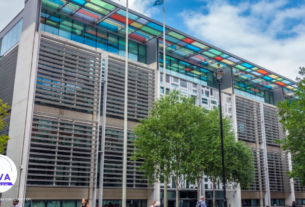In a landmark move to reset strained relations, the United Kingdom and European Union convened today in London for their first high-level summit since Brexit. Prime Minister Keir Starmer welcomed European Council President António Costa and European Commission President Ursula von der Leyen at 10 Downing Street, marking what officials described as a “turning point” in UK-EU diplomacy.
Talks focused on rebuilding trust and cooperation across critical areas, including:
- Defense and security collaboration
- Youth mobility and visa arrangements
- Trade facilitation and customs alignment
- Streamlined access to EU passport e-gates for UK citizens
While no major agreements are expected to be signed at this stage, both parties emphasized the summit’s symbolic and strategic importance.
“This is a fresh start,” said Starmer in his opening remarks. “We want to move beyond old divisions and shape a future that works for both our citizens and our shared security.”
The dialogue reflects growing pressure from UK businesses, academics, and youth organizations to soften the economic and social fallout from Brexit. EU officials also see potential in closer collaboration, especially in defense integration and climate action.
A Step, Not a Settlement
The summit, which took place at Lancaster House, is not expected to deliver a new treaty or formal pact. Instead, both sides seek to establish working groups and joint task forces that could pave the way for incremental reforms in the months ahead.
“We are not here to renegotiate Brexit,” von der Leyen told reporters. “But we are here to repair and modernize our relationship for today’s challenges.”
Behind the scenes, sources say EU leaders are open to modular agreements on areas like science cooperation, military readiness, and mutual recognition of professional qualifications.
Domestic Winds
Back home, Starmer is treading carefully. His Labour-led government has ruled out rejoining the EU or its Single Market, but insists that closer alignment on regulation, trade, and mobility is in the national interest.
The meeting comes just weeks after local elections saw significant gains for Reform UK, a party critical of both Labour and the EU. Some Tory MPs are already warning against what they call a “Brexit betrayal.”
Despite this, recent polling shows public appetite for more pragmatic EU ties, especially among younger voters and business leaders who continue to suffer from supply chain disruptions and travel limitations.




